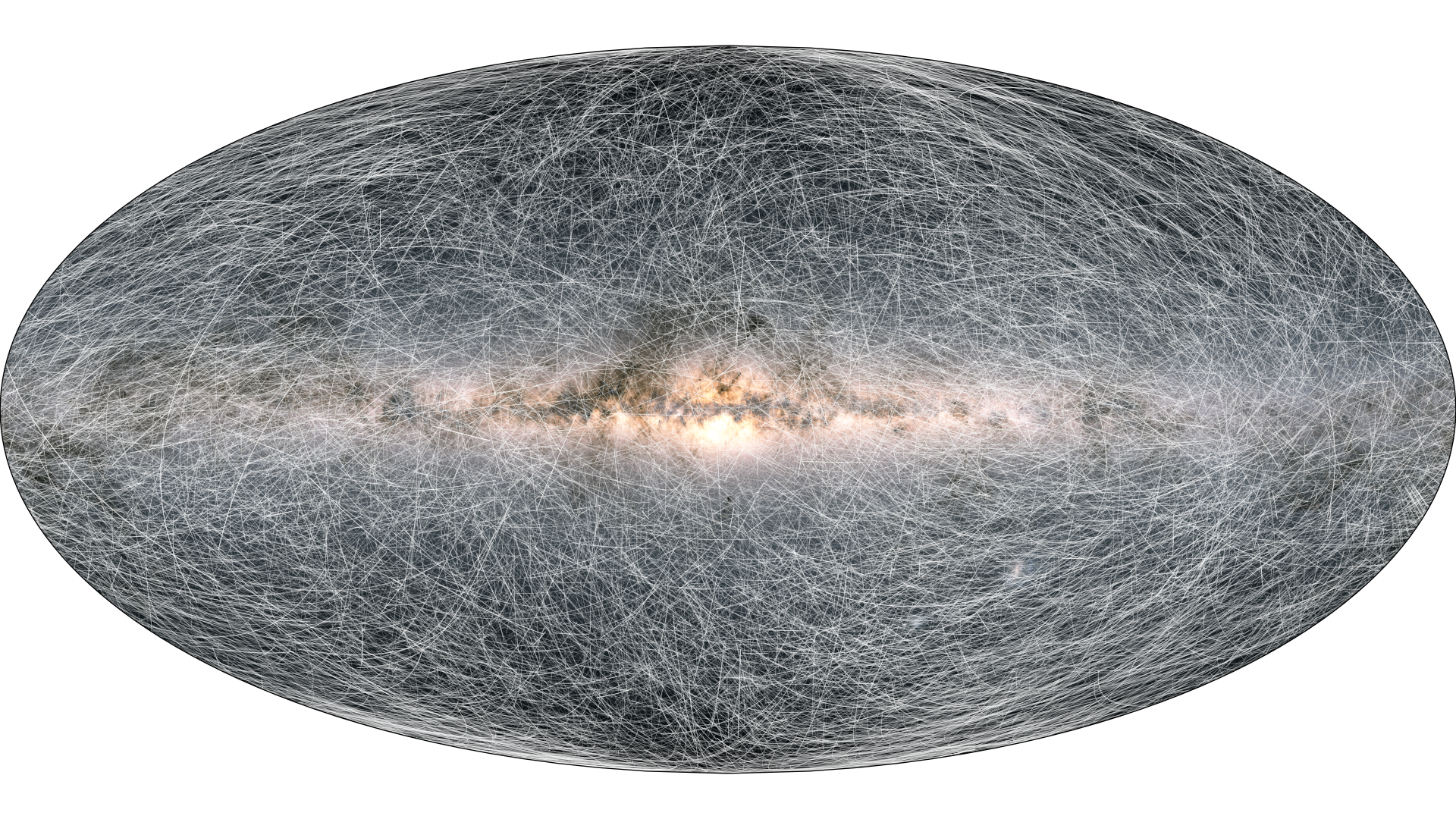
Data collected by the European Space Agency’s Gaia observatory has been used to create the most detailed 3D map of the galaxy ever made. The new data set could help scientists unravel many mysteries about the universe’s expansion and the solar system’s future.
What is Gaia? Launched in 2013, the Gaia observatory is intended to observe as many of the galaxy’s stars as possible. It is designed to measure stellar positions, distances, motions, and brightness with more precision than any instrument before, with the goal of cataloguing approximately 1 billion objects. It is designed to observe each object about 70 times or so in order to track their motions and velocities over time, accurate enough to measure the width of a hair from 2,000 kilometers away.
The new map: The latest data pinpoints the location and movements of just under 2 billion stars, with highly accurate measurements of about 300,000 stars within 326 light-years of the solar system. The new map shows us that our solar system’s orbit around the Milky Way is accelerating by seven millimeters every year, bringing it that much closer to the center of the Milky Way over time.
What could we learn? The point of the mission isn’t simply to get a glimpse of the galaxy’s stars in motion. The data could help astronomers answer a number of different scientific questions, including how the Milky Way was formed over time, where the solar system and other star systems are headed, what the expansion of the universe looks like, and the distribution of regular and dark matter throughout the galaxy. Previous Gaia data sets have been used to ascertain the mass of the Milky Way and how many sun-like stars might be orbited by Earth-light planets.
What’s next: Gaia will be operational until about 2022, but it’s holding up better than expected and could see its mission extend to 2024 or beyond. The final data release should catalogue more than 2 billion objects in the galaxy.


